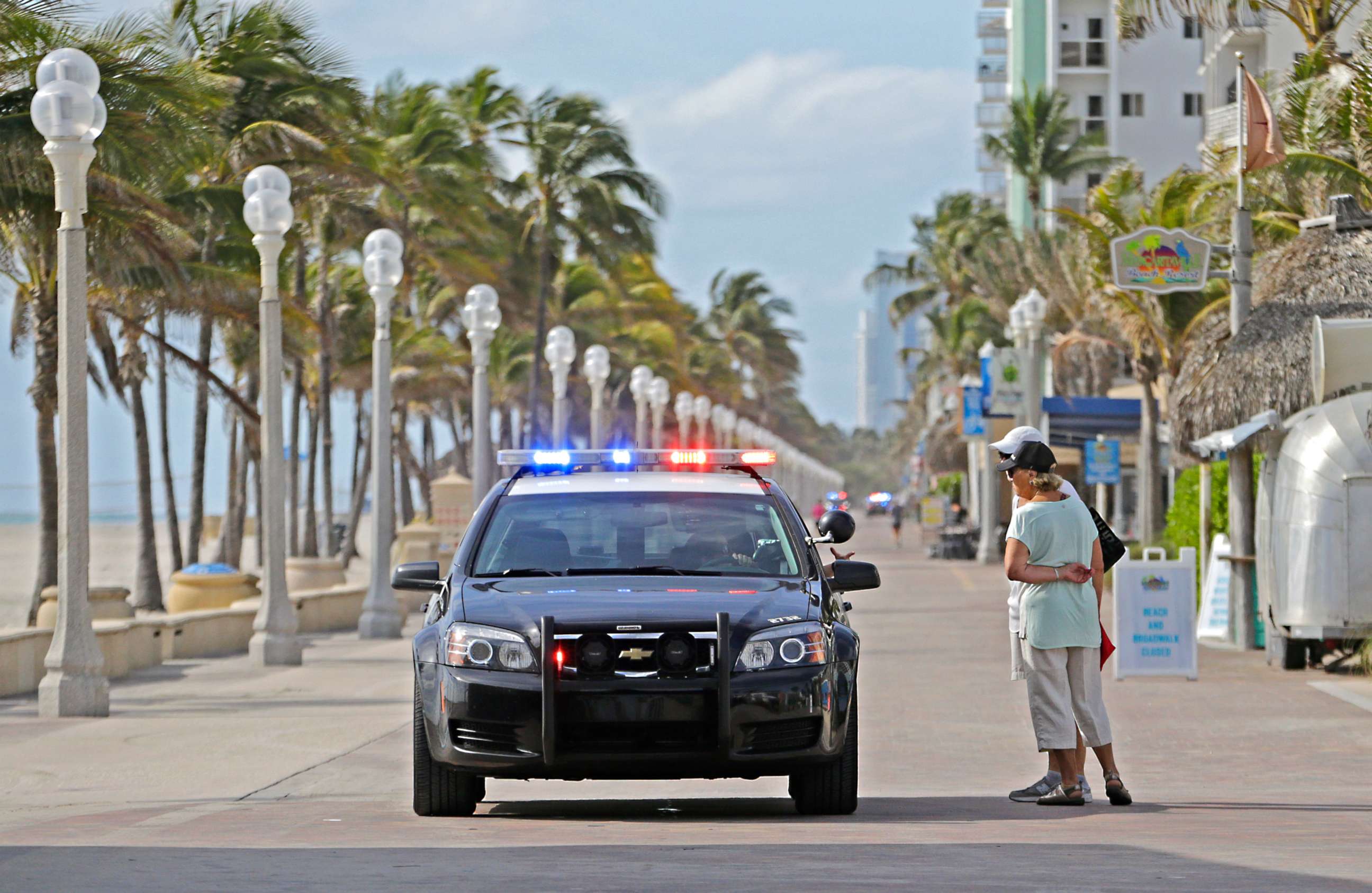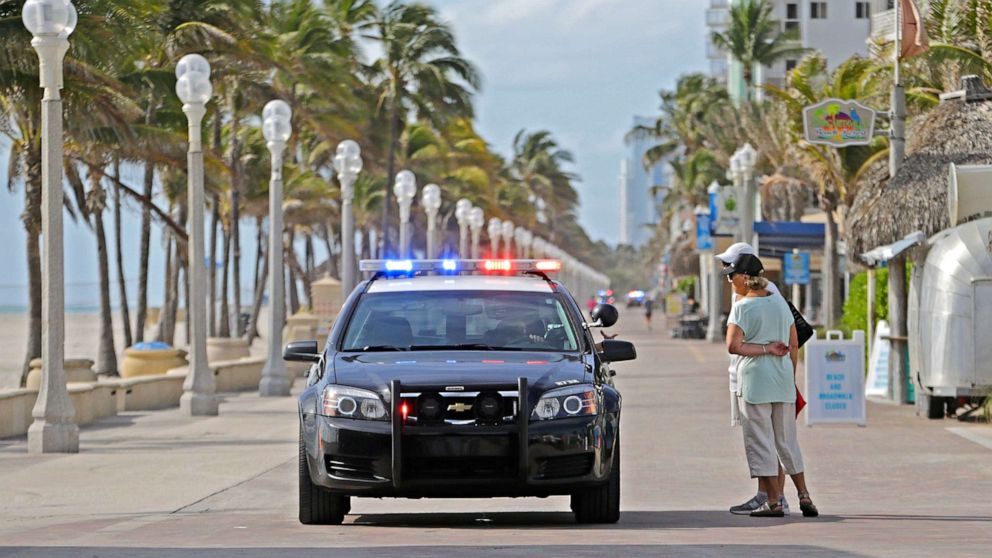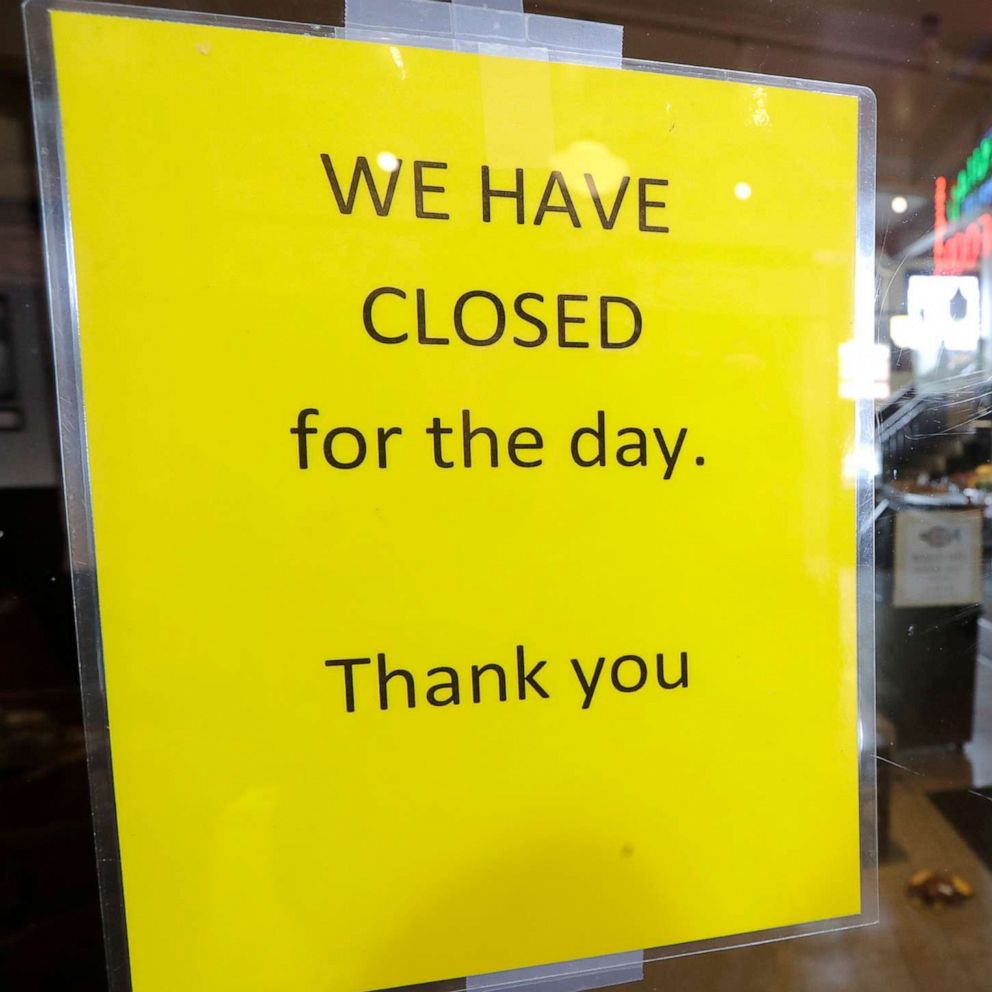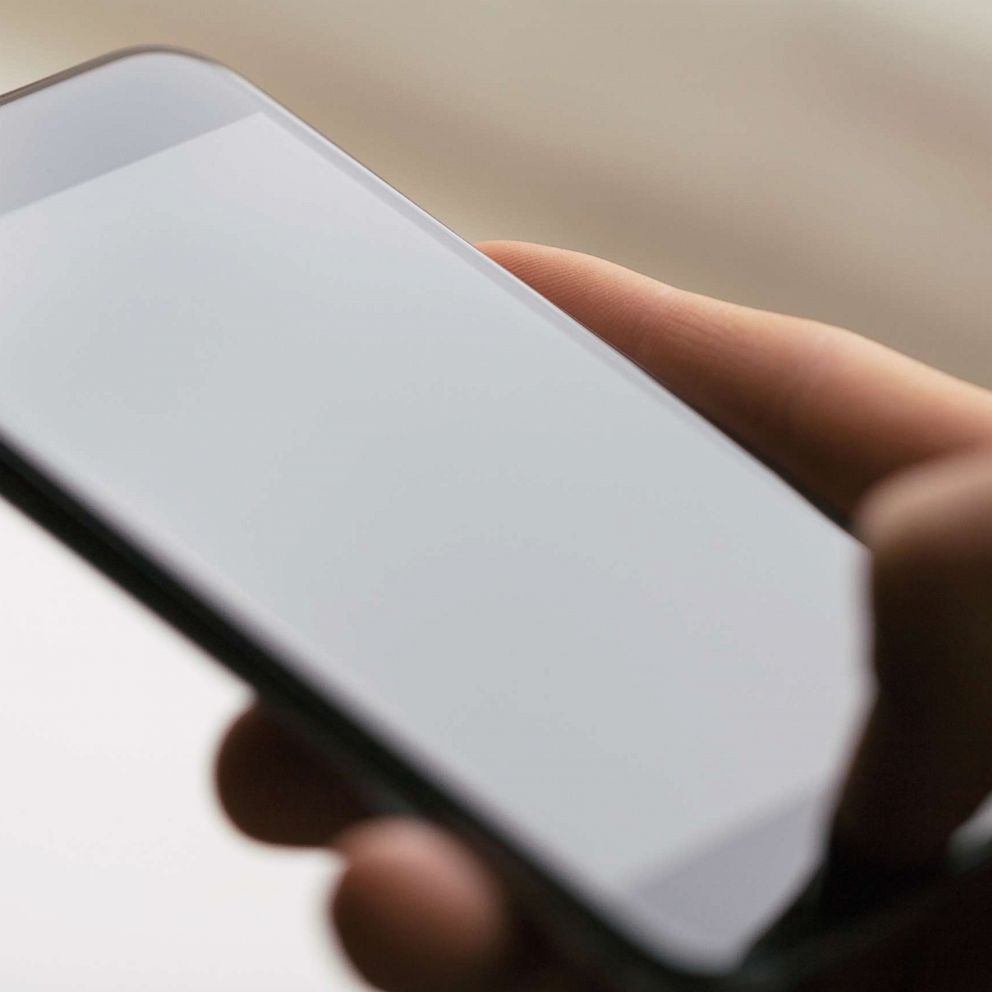Police departments stress need for officers to get tested to limit disruptions to service
As police departments pare down resources in response to the novel coronavirus, officers are not getting adequate testing, several departments stressed to ABC News, and the effects could be drastic.
In one example, 31 New York City police officers called out sick from one precinct this week after an officer tested positive for the coronavirus.
"It's a huge issue. Because right now what they do if someone has the symptoms, they just have to quarantine it for 14 days and all the other officers around them," Chuck Wexler, executive director of the Police Executive Research Forum, told ABC News.
Wexler said that the issue not only extends to officers, but staff as well.
"If you get a dispatcher who has symptoms without testing, it wipes them out. So there has to be a national priority given to first responders for coronavirus testing," he continued.
Aurora, Illinois, Police Chief Kristen Ziman told ABC News that emergencies don't stop in a pandemic, so it is vital for officers who have symptoms or feel like they've been exposed to people with symptoms, be able to get tests to determine if they need to be quarantined for a long period of time or not.
"People still have to respond," she said. "I'm talking about priority one or violence where people's lives are at stake. We're asking -- these cops, these EMTs and these medical professionals can't go home -- and they can't work from home. That's the foreign concept to us. And so we have to take care of them so they can take care of others."
She stressed that having those tests is a priority.

Miami Police Chief Jorge Colina, told ABC News that if they are sending people home because they feel symptoms, it can turn into a situation where they have few officers to respond to calls.
"If we're liberal with sending people home, and we're not getting them tested, and we're not getting those results back quickly, I can run out of officers kind of quick. And that's the problem, we want to be responsible and we just need to be able to get them back," Colina said.
He said the initial problem was being able to get tests for officers.
"The first problem we had was access to the test, because, as you know, this was a national problem that just wasn't too many kits available. We've had some success now," he said. "But for us, it's important to get the results back. Because if we get back a negative, and a person, self-isolated, let's say for a week, and they were negative, then we're able to bring that person back, as opposed to waiting an additional week before we're able to bring them back."
His department of 1,400 officers has already pared back operations and people are working remotely "where they can."
"Any officer that you have that holds an administrative job, they should be working remotely, they have the ability to until they are needed to go out to patrol because we've got to protect the first responders," he said.
Ziman echoed Colina's message.
"Insert any terrible thing happened here. We've dealt with it. And so this is one thing that is uncharted territory right now. So you have a lot of uncertainty," she said, adding that officers are also concerned about their families.
She stressed that officers need tests.
"It is the fact that we have to be available to people who need us -- period. And so it's not so much about getting special tests, it's that we need to get them back on the streets so they can answer 911 calls, so they can answer medical emergencies," Ziman said.
ABC News' Alex Mallin and Aaron Katersky contributed to this report.







